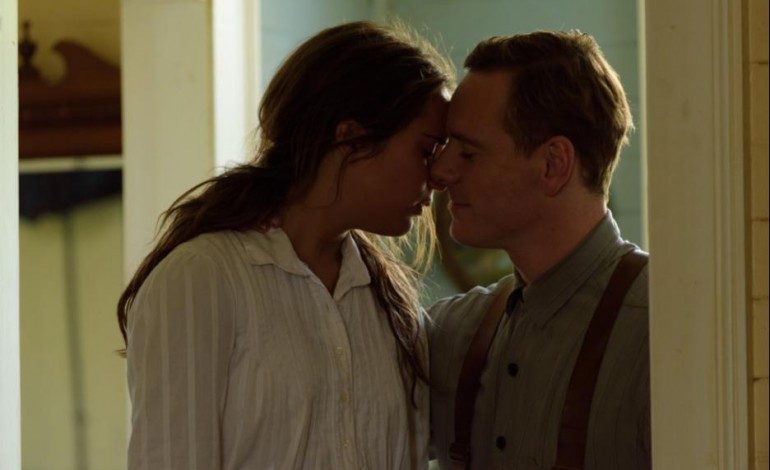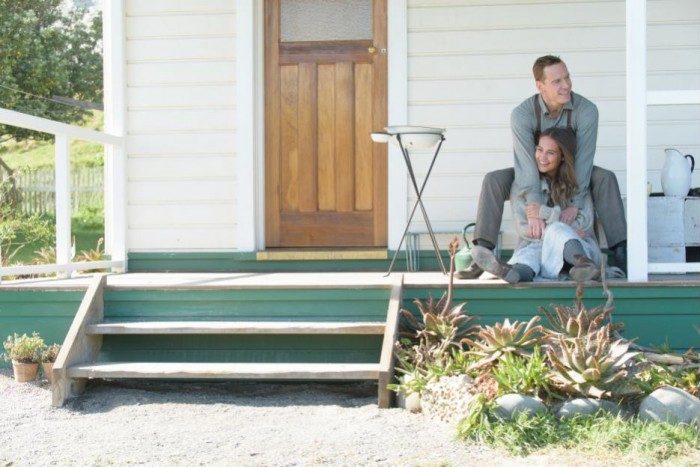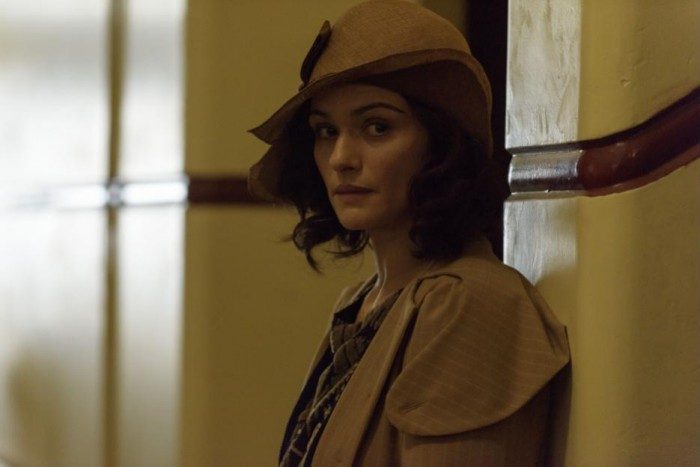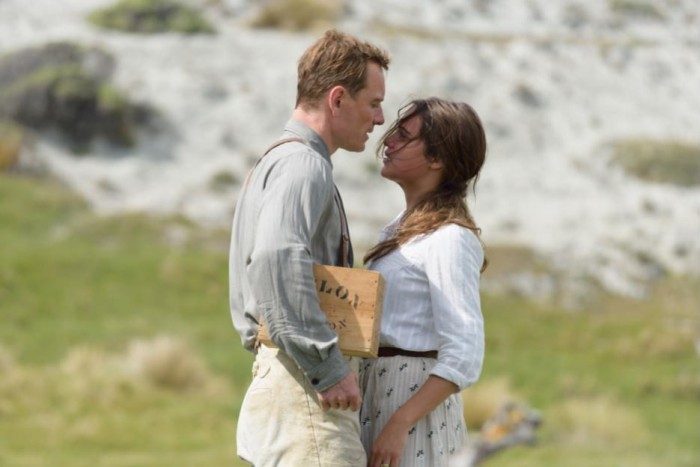

Every movie is manipulative. How filmmakers choose to set and light a specific shot and scene is, to the best artists, an opportunity to frame a certain mood and illicit an emotional response from its audience. How an audience will respond is all in the eyes, ears and hearts of the beholder. With that in mind, The Light Between Oceans may pose a slight challenge for critical analysis. This stately, handsomely old-fashioned period melodrama can be read as as classically literally or as Nicholas Sparks-level hookum. Yet, here’s a thought: can it be both and still be effective?
For the most part, the answer is yes. Derek Cianfrance, who directed and wrote the screenplay adapted from M.L. Stedman’s 2012 novel, structures the film for the most part with a clarity, visual grace and a grounded lack of sentimentality. The story follows a grizzled soldier named Tom (Michael Fassbender) who retreats to an Australian lighthouse post following World War I. Shell-shocked, the isolation appears to suit him until he falls for the vibrant and assertive Isabel (Alicia Vikander), a woman who resides on the mainland nearby his self-imposed island seclusion. After a brief courtship, the two marry and at first live idyllically on the lighthouse island with hopes of starting a family. The first pregnancy ends in miscarriage, as does the second. Grief-stricken, one day a call is sent to them in the form a boat carrying an infant and they decide to raise the child as their own. Careful weaving is necessary to keep a story like this afloat, particularly in a modern cinematic landscape where there’s seemingly little place for stately, old-fashioned period melodramas.
Cianfrance has two aces in corner in Fassbender and Vikander, two striking, nearly other-worldly talents. Not only do they possess the sort of chemistry and cheek bones that romantic epics once mandated but they also possess the ability to read both authentically-period and modern at the same time. Fassbender, with his soft-spoken resolve that’s at once humble and intimating is essentially playing an everyman-type here but with his moody charisma and gruff intensity still manages to provide an intelligent and utterly specific characterization. Vikander, whose character in set-up is perhaps more of an idea than a character – Isabel falls into dreaded “manic pixie dream girl” tendencies particularly at the start of the picture – ably displays a sense of yearning that feels lived-in rather than studied. The early stretches of the film, which focus on their quickly accelerated romance is framed with a tenderness and an uncommon compassion.
It further helps that The Light Between Oceans is achingly beautiful throughout. Cinematographer Adam Arkapaw (who filmed last year’s Macbeth – also starring Fassbender – and won an Emmy Award for that iconic six-minute tracking shot episode of True Detective) contributes mightily to its beauty. There’s postcard perfect shots of the Australian lighthouse island and its surrounding vistas – the lovers reside at Janus Rock, fictitious, while the film was shot in New Zealand -but more importantly, an exquisitely framed intimacy with not just the geography of the land but between the performers.
Where the wheels start to stall is strangely at the same time where the film’s narrative and emotional pull should start to really accelerate. After a few years pass at Janus Rock, with Tom and Isabel now maintaining parentage of a healthy young child named Lucy, the plot mechanics start to pile up as does the creakiness of Alexandre Desplat’s music. On the mainland, the happy family encounter a forlorn woman named Hannah (Rachel Weisz). As she relishes in Lucy’s happy countenance, she remarks how she once had a child who would now be about her age. That child was lost a sea some time earlier. Oh no. It’s not very difficult to connect the clues and the thorny narrative requires such a delicacy in order to work that it’s almost a given The Light Between Oceans looses sight as it heads to its soapy conclusion or conclusions, as may be more aptly put.
What’s so refreshing about the movie in its first two-thirds is the time Cianfrance spends building Tom and Isabel’s relationship and their compassionate, if dubious decision. The conclusion, by contrast, is framed in a more seemingly self-conscious note. We get big scenes, nearly one right after another but there’s little throughline, little connective tissue and little emotional weight. Unfortunately, it really shortchanges the arc of Hannah – ably played by Weisz in a stern and controlled performance – who should surely be the emotional center of the film and yet comes off as an interloper.
As a filmmaker, Cianfrance seems uncommonly interested in his character’s psychology – consider his past work Blue Valentine (a back-and-forth chronicle of the propulsive and destructive qualities of falling in love) and the ambitious, if slightly just off The Place Beyond the Pines (an examination of reality and myth in modern masculinity) – and their inner turmoil. Sure, The Light Between Oceans is one of those ultra-refined, prestige-bait movies based on a novel that likely made the older-ladies book group rounds a few years back, but Fassbender’s despair and Vikander’s vibrancy, particularly at the film’s start, have the verve of something startling and real.
Verdict: ★ ★ ★ ☆ ☆
Director Derek Cianfrance has crafted a film that’s not particularly in vogue anymore, that of the melodrama in the most classical sense in The Light Between Oceans. Nothing sexy or hip about it, but this old-fashioned weepie is mostly successful because the actors – Michael Fassbender, Alicia Vikander, Rachel Weisz – infuse it with such raw, untethered feeling. While the pace ebbs and flows – sometimes going too far and sometimes not nearly far enough – and an overly episodic and rather convoluted concluding act nearly threatens to ruin the whole show, the lived-in and intelligently sculpted performances keep this stately, refined period piece lit.



